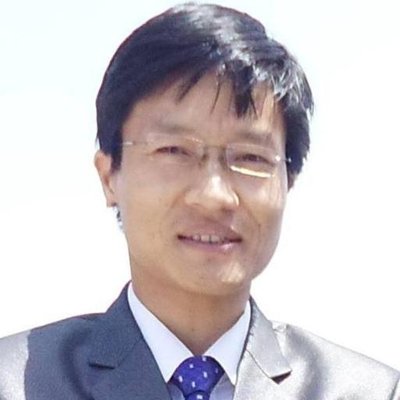Implementing Life Skills Education Curriculum

Shak Bahadur Budhathoki
The Government of Nepal introduced Social Studies and Life Skills Education Curriculum in 2020 for grade 11 and 12 as a compulsory subject at first, but it turned out to be an optional one later on following intense debates and discussions. This was the first time that ‘Life Skills Education Curriculum’ was implemented in the history of Nepal’s formal education in line with National Curriculum Framework for School Education, 2019 with its third amendments in the context of federalism. Based on this experience, this article derives key lessons learned in the process of preparing, finalising and implementing a new curriculum in schools.
Debates
In preparing the Life Skills Education Curriculum, the Curriculum Development Centre under the Ministry of Education, Science and Technology, assigned the task of developing the curriculum to subject specialists. A group of five people prepared the curriculum through rigorous research and consultations. The people involved in the process were subject experts, development professionals, teachers and students. As shared by one of members of the group, after submitting the draft curriculum, they were no longer consulted in making changes and finalising the curriculum subsequently, indicating gaps in the curriculum making process at the center.
As soon as the curriculum was introduced for grade 11 and 12, debates, discussions and confusions began to surface around whether to implement it or not. Meanwhile, interest groups had their own roles in this regard, especially, Mathematical Society of Nepal, a professional group of mathematics teachers, had strong reservations – they voiced that instead of Social Studies and Life Skills Education, Mathematics should be taught for students as a compulsory subject as it is more important for students’ better career prospects. Therefore, they filed a petition at the Supreme Court that further delayed the implementation process.
As a result of the ongoing debates at the national level, this had implications at the frontline – that is, at the school level – regarding which subject to implement. In this context, some schools began implementing Mathematics while some others taught Social Studies and Life Skills Education at their own discretion. However, the Supreme Court gave a verdict in favour of implementing Social Studies and Life Skills Education Curriculum on 12 January 2021, clearing ongoing debate in this regard after a long time. And later, Curriculum Development Centre again amended its provision that schools or students could choose either Mathematics or Social Studies and Life Skills Education as an optional subject in grade 11 and 12.
Although local and provincial governments are supposed to write curriculum and textbooks as per the National Curriculum Framework for School Education 2019 with required adaptations in their contexts, it has not yet been translated into practice. Further, local governments are supposed to measure learning outcomes after implementing the new curriculum. In this context, to what extent local and provincial governments are empowered to undertake due roles and responsibilities is crucial? In fact, it points towards a key issue - devolving power alone can little solve the problem, but the system needs to be strengthened as necessary to carry out such roles and responsibilities.
In addition, local and provincial governments and Education Training Centres had little cooperation in implementing Social Studies and Life Skills Education Curriculum. While introducing a new curriculum, the Education Training Centre and District Education Office used to conduct orientations for teachers, including doing piloting before its roll out. But these activities did not take place this year as shared by a head teacher of a community school in Kailali district. This may be partly due to COVID-19 contexts as well as Nepal’s transition into the federal system for the first time in the history.
As Social Studies and Life Skills Education could be implemented as an optional subject for grade 11 and 12, schools need a teacher's quota for facilitating the course in the school on a regular basis. Since there were no such arrangements, schools were in confusion about how to manage teachers and their salary while local governments often had other priorities rather than focusing on academic aspects. Thus, managing teachers for the new curriculum resulted in extra burden for many schools. In addition, what should be academic qualification for teaching this new curriculum is not being clarified yet in the policy. As a result, school stakeholders had to struggle dealing with such practical issues at the frontline.
Way forward
Although the curriculum reform process is a regular activity, it has often been an issue of intense debates, discussions and contestations. In fact, stakeholders as well as interest groups influence the curriculum making and implementation process as is mostly observed in many other cases over the years. Given the context, why do we repeat the same fate every time instead of exploring ways to avoid them by some means? Why don’t we learn from the past and remedy the ritual that takes place regularly? All this indicates a need for reforming the reform process itself especially by the concerned authorities, who assume such responsibilities in the government system in the short and long run.
(Budhathoki is a member of Lifelong Learning Mandala 2020, a loose forum of professionals working in the education sector. shakbahadur.magar@gmail.com)
Recent News

Do not make expressions casting dout on election: EC
14 Apr, 2022
CM Bhatta says may New Year 2079 BS inspire positive thinking
14 Apr, 2022
Three new cases, 44 recoveries in 24 hours
14 Apr, 2022
689 climbers of 84 teams so far acquire permits for climbing various peaks this spring season
14 Apr, 2022
How the rising cost of living crisis is impacting Nepal
14 Apr, 2022
US military confirms an interstellar meteor collided with Earth
14 Apr, 2022
Valneva Covid vaccine approved for use in UK
14 Apr, 2022
Chair Prachanda highlights need of unity among Maoist, Communist forces
14 Apr, 2022
Ranbir Kapoor and Alia Bhatt: Bollywood toasts star couple on wedding
14 Apr, 2022
President Bhandari confers decorations (Photo Feature)
14 Apr, 2022










